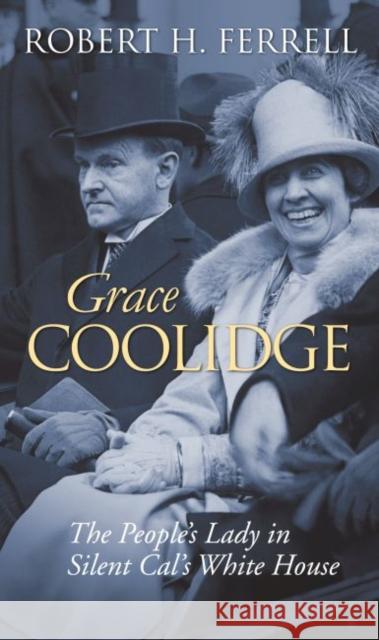Grace Coolidge: The People's Lady in Silent Cal's White House » książka
topmenu
Grace Coolidge: The People's Lady in Silent Cal's White House
ISBN-13: 9780700615636 / Angielski / Twarda / 2008 / 198 str.
When Grace Anna Goodhue wed Calvin Coolidge in 1905, she thought then that marriage "has seldom united two people of more vastly different temperaments and tastes." Warm and vivacious to her husband's dour and taciturn, Grace was to be a contrast to Calvin for years to come. But as Robert Ferrell shows, their marriage ensured her husband's rise to high office.
Ferrell focuses on Grace Coolidge's years in the White House, 1923-1929. Although the president did his best to rein her in--even forbidding her to speak on public issues--Grace quickly became one of the most popular and stylish of first ladies. Among the best-dressed women of her time (famously in red), she became the nation's fashion leader. She also opened the White House to the public, sponsored musicales within its walls, and worked on behalf of the deaf and disabled--all despite a less than supportive spouse. Ferrell recounts how she accomplished all of this, finding strength through the years in her Burlington background, her family, and her faith. In this lively book Ferrell provides a perceptive and often moving account of Grace Coolidge. From his insightful portrait of her Vermont roots to a frank assessment of the Coolidges and their sons, he offers a fresh perspective on a much-admired woman who was perhaps her husband's greatest political asset. Ferrell also takes readers inside Grace's strained marriage to the famously taciturn president who kept his wife in the dark about his plans, both political and personal. He offers a much more subtle look at the Coolidges and their relationship in the public eye than we've had, shedding new light on how she managed to deal with his irascible temper-and how the marriage ultimately triumphed over difficulties that Calvin could not have handled alone. Alternately charming and analytic, Ferrell's narrative will leave readers with the real sense of Grace Coolidge as a human being and a contributor to the historical legacy of presidential wives. For she did more than simply enliven a quiet White House--she set the tone for a nation and for first ladies to come.










